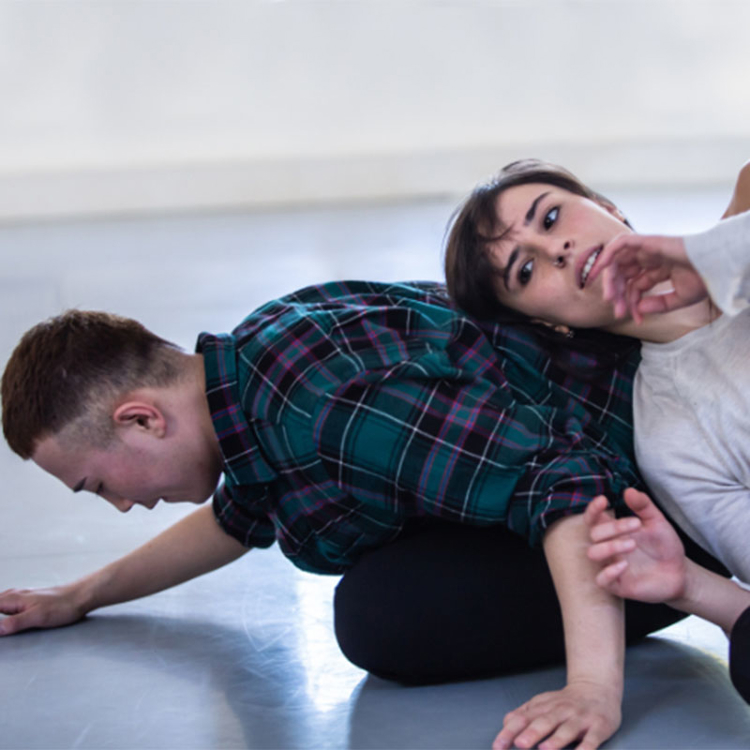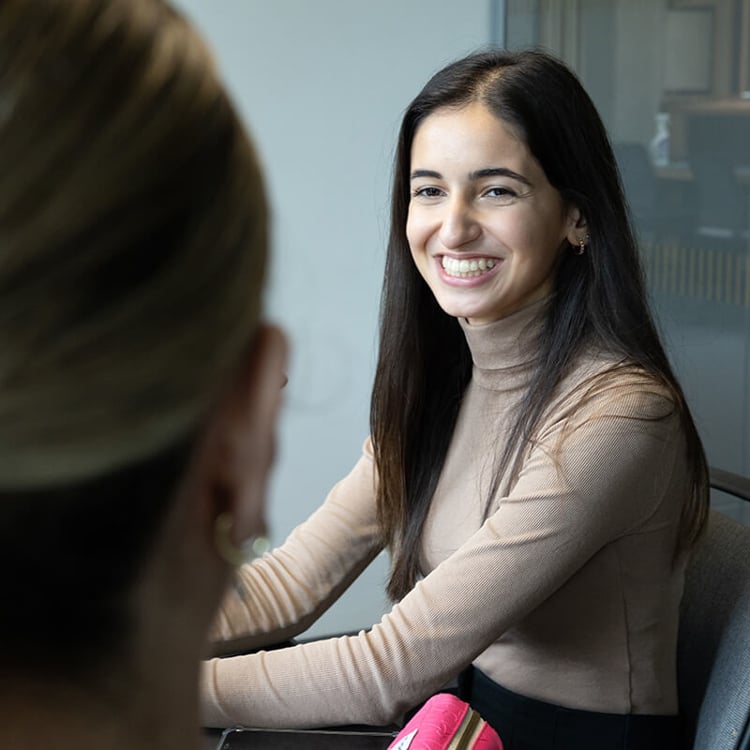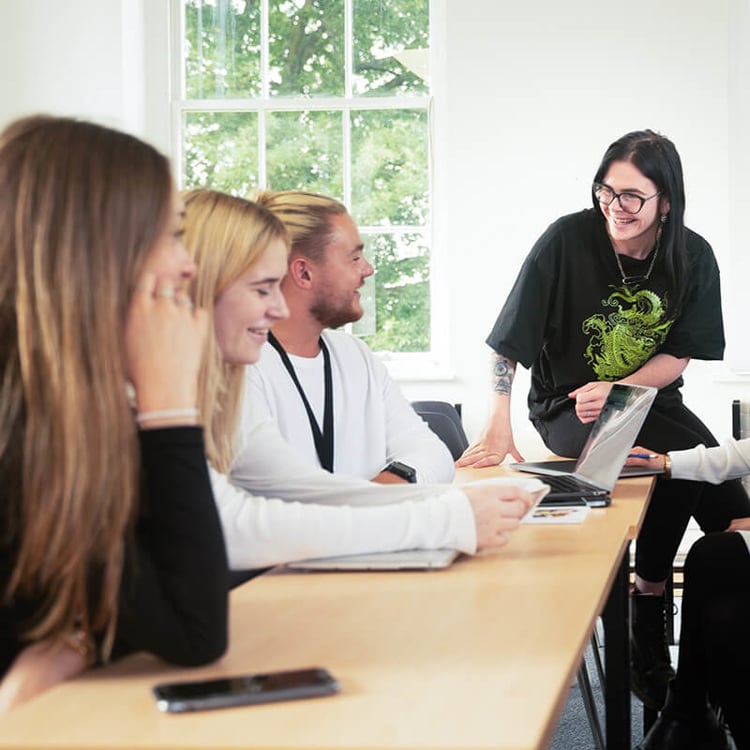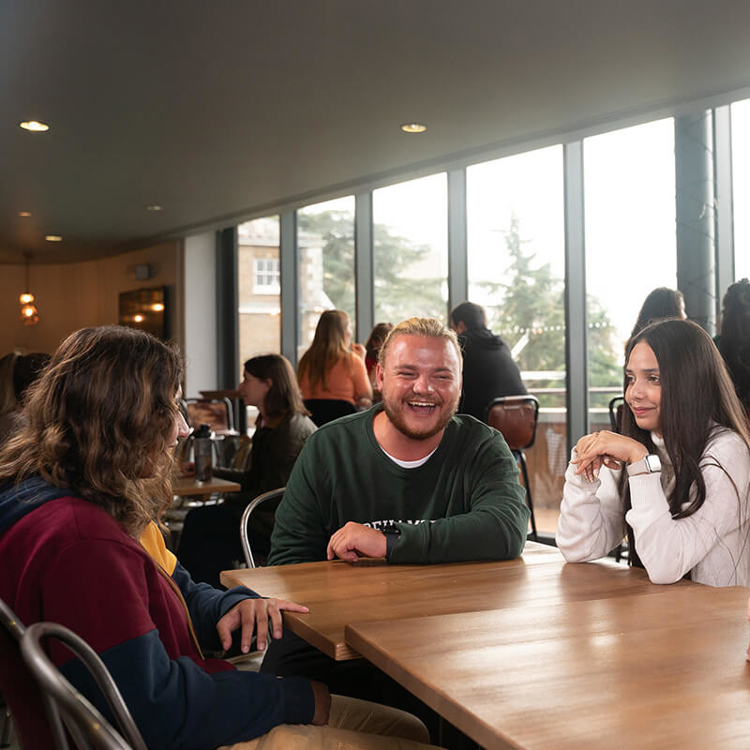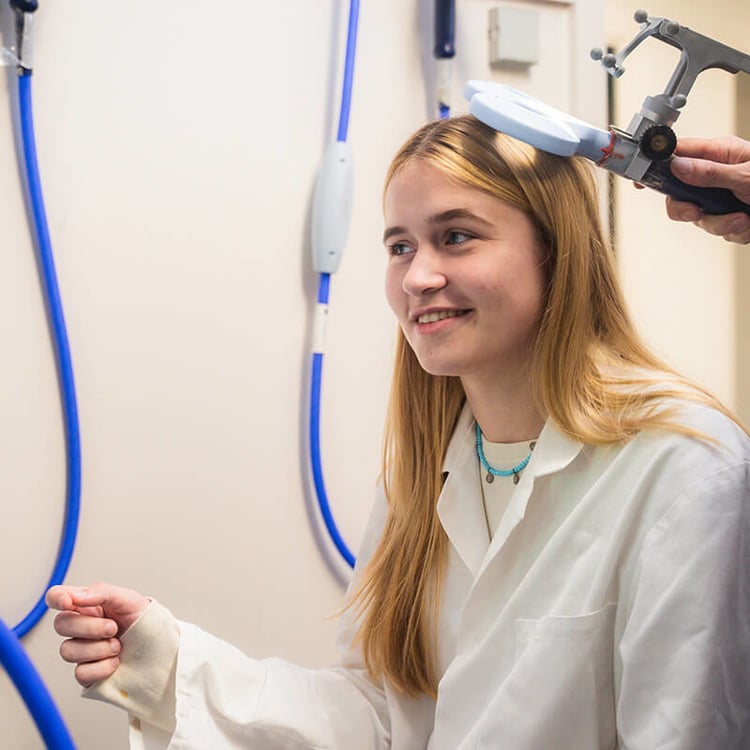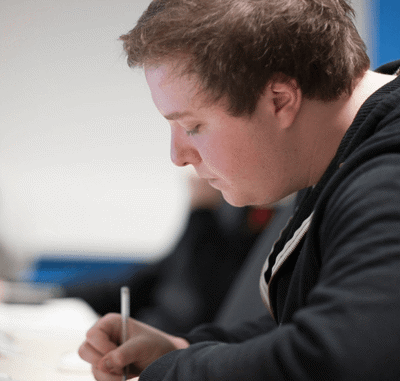/ Postgraduate Taught /
Start date:
September 2024
Duration:
2 years (full-time)
3 years (part-time)
Number of credits:
180
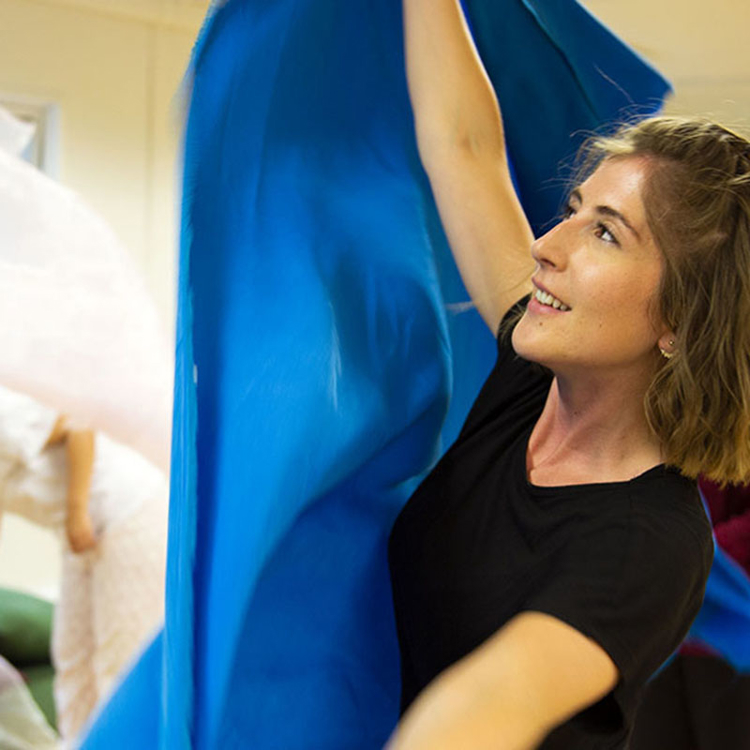
Build a rewarding career as a professionally-qualified registered dance movement psychotherapist. Graduates are eligible to register with the Association for Dance Movement Psychotherapy UK. This programme is designed for people who have prior dance experience and professional or volunteering experience with people in need.
Did you know?
Graduates are eligible to register with the Association for Dance Movement Psychotherapy UK (ADMP UK) and become professionally-qualified registered dance movement psychotherapists.
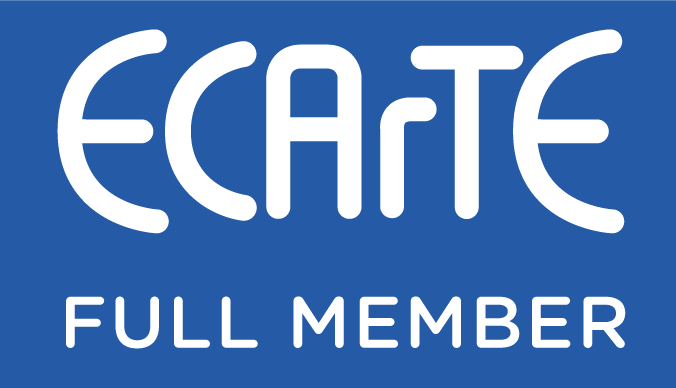
Modules
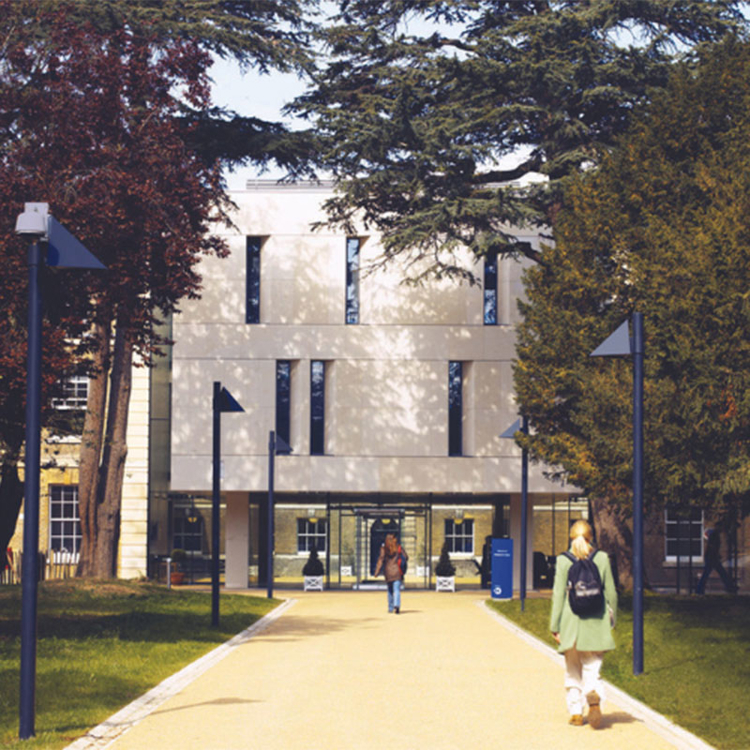
Your curriculum
Dance movement psychotherapy is a relational process in which a client and therapist engage in an empathetic creative process using body movement and dance to assist the integration of emotional, cognitive, physical, social and spiritual aspects of self.
We believe that focusing on the creative potential of individuals in a relationship creates a sound ethical basis for psychotherapeutic work.
You will be taught by leading experts who will equip you with the skills, experience, and confidence to work as a dance movement psychotherapist.
All graduating students are eligible to apply for registration with the Association for Dance Movement Psychotherapy (ADMP UK). Graduates often create their own positions; facilitating dance movement psychotherapy sessions within settings including: social services; special needs; schools; psychiatry; probationary and rehabilitation units; forensic psychiatry.
Learning
The MA in DMP benefits from tutors’ practice-based research, which feeds directly in teaching.
Our uniquely interdisciplinary MA Dance Movement Psychotherapy integrates theoretical, experiential and clinical learning, preparing students to practice as dance movement psychotherapists. Practice-based research cascades into teaching emphasising the social, biological and psychological construction of the moving body and meaning-making. The programme offers opportunities for you to explore and expand movement preferences, ways of interacting with others, belief systems, prejudices and values. Emphasis is placed on development of your own style as a dance movement psychotherapist. You also have the opportunity to perform and exhibit your ongoing work in a yearly Arts Therapies exhibition.
The programme ethos emphasises a critical consideration of different descriptions and explanations of bodies, human systems and therapeutic practices in different places and times. In the context of an individual student's experiences, beliefs, values and different 'cultures', our teaching actively promotes a participatory ethic, self-reflexive practices and the ability for critical reflection on: creative processes, intersubjectivity and the construction of social and power differentials, in learning and in psychotherapy.
We also offer weekend introductory courses, 5 day Summer Schools, and 20 week part time evening Foundation Courses which provide a useful background in related professions. For more information, see our Psychology Short Courses.
Careers
Graduates can enter a variety of roles including:
- NHS clinical practice within in and outpatient services
- community services
- prison services
- special needs schools
- performing arts contexts
- drug rehabilitation
- in social services with immigrants and asylum seekers
- in shelters with women who have suffered domestic abuse
- dementia services
- learning disabilities services
- child and adolescent mental health services.
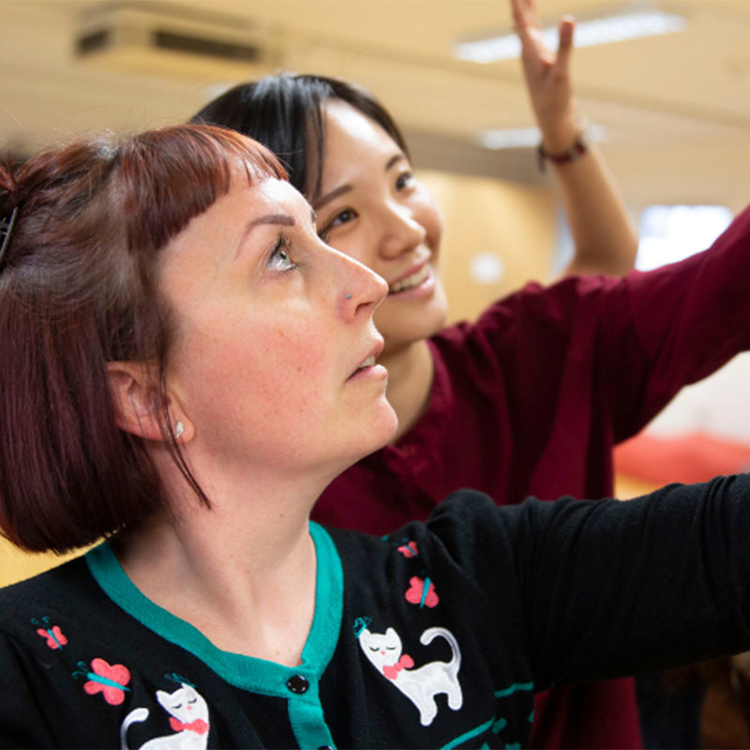
Open days
Get a real taste of our campus, community and what it’s like to study at Roehampton
Applying
UK postgraduate students apply through our direct application system.
Specific entry requirements
All eligible applicants to the programme will be interviewed/auditioned by the Programme Coordinator with Programme staff. Selection will be based on the following admissions criteria:
- Applicants will normally be required to hold a good second-class honours degree (or above); in most cases this will be in a dance-related discipline or a clinically related discipline such as Dance, Psychology, Mental Health (Psychiatric) Nursing, or Social Work etc. Alternatively graduate level professional qualifications in appropriate disciplines such as Dance, Drama, Performing Arts, Occupational Therapy, Probation Officers or Social Work, are also accepted.
- Applicants must attend an admissions day which includes experiential work and an interview, or a skype interview for international applicants.
- Applicants will be expected to have prior appropriate clinical experience of having worked within a setting and with clients appropriate to the programme. Normally applicants will be expected to have a minimum of 1 year prior clinical experience. This might include working with children, adults or older adults in the areas of learning disabilities, mental health, hospice care, dementia care, neuro-disability, homelessness, addictions etc (this is not an exhaustive list). This work can be on a voluntary or employed basis.
- It is expected that applicants will have prior movement and dance movement experience either having worked professionally in a dance movement/performance context or having practiced continuously for a minimum of 2 years prior to training. Knowledge and experience of at least two dance movement techniques/styles is required.
- Applicants should also demonstrate personal qualities considered important to train as a therapist, such as their capacity to form and maintain appropriate empathic relationships with clients. They should also demonstrate emotional literacy and robustness and an ability to be self-aware and open.
- Applicants will be required to supply two completed references within their application; normally one of these should be able to comment on the applicant’s academic suitability and the other the applicant’s clinical suitability for the programme.
- In addition to these requirements, all students must be prepared to enter mandatory on-going personal therapy for the duration of the programme.
- All applicants’ movement capacity will be ascertained as part of the interview.
- We also offer 20 week evening foundation courses which provide a broad oultine and introduction in the arts and play therapies.
Personal Statement
The typed personal statement (approx 500 words) should cover the following main areas:
- What has led you to wish to train as a therapist at this time?
- How does this connect with your dance background, experience and hopes for the future?
- what is your experience of how dance movement may enhance lives and facilitate change? (Specific reference to work or volunteering with vulnerable people is helpful).
- Mention relevant courses, conferences and reading, any meetings with dance movement or other therapists.
The personal statement is also an indication of how well you express yourself in writing and helps us to identify any needs for specific support and development before or during the programme.
General entry requirements
September 2024 entry tuition fees
UK: £27,563
We offer a wide range of scholarships and bursaries. See our 2024 financial support pages for UK students.
We also provide other ways to support the cost of living, including free buses and on-campus car parking, hardship support and some of the most affordable student accommodation and catering in London. Find out more about how we can support you.
International postgraduate students apply through our direct application system.
Specific entry requirements
All eligible applicants to the programme will be interviewed/auditioned by the Programme Coordinator with Programme staff. Selection will be based on the following admissions criteria:
- Applicants will normally be required to hold a good second-class honours degree (or above); in most cases this will be in a dance-related discipline or a clinically related discipline such as Dance, Psychology, Mental Health (Psychiatric) Nursing, or Social Work etc. Alternatively graduate level professional qualifications in appropriate disciplines such as Dance, Drama, Performing Arts, Occupational Therapy, Probation Officers or Social Work, are also accepted.
- Applicants must attend an admissions day which includes experiential work and an interview, or a skype interview for international applicants.
- Applicants will be expected to have prior appropriate clinical experience of having worked within a setting and with clients appropriate to the programme. Normally applicants will be expected to have a minimum of 1 year prior clinical experience. This might include working with children, adults or older adults in the areas of learning disabilities, mental health, hospice care, dementia care, neuro-disability, homelessness, addictions etc (this is not an exhaustive list). This work can be on a voluntary or employed basis.
- It is expected that applicants will have prior movement and dance movement experience either having worked professionally in a dance movement/performance context or having practiced continuously for a minimum of 2 years prior to training. Knowledge and experience of at least two dance movement techniques/styles is required.
- Applicants should also demonstrate personal qualities considered important to train as a therapist, such as their capacity to form and maintain appropriate empathic relationships with clients. They should also demonstrate emotional literacy and robustness and an ability to be self-aware and open.
- Applicants will be required to supply two completed references within their application; normally one of these should be able to comment on the applicant’s academic suitability and the other the applicant’s clinical suitability for the programme.
- In addition to these requirements, all students must be prepared to enter mandatory on-going personal therapy for the duration of the programme.
- All applicants’ movement capacity will be ascertained as part of the interview.
- We also offer 20 week evening foundation courses which provide a broad oultine and introduction in the arts and play therapies.
Personal Statement
The typed personal statement (approx 500 words) should cover the following main areas:
- What has led you to wish to train as a therapist at this time?
- How does this connect with your dance background, experience and hopes for the future?
- what is your experience of how dance movement may enhance lives and facilitate change? (Specific reference to work or volunteering with vulnerable people is helpful).
- Mention relevant courses, conferences and reading, any meetings with dance movement or other therapists.
The personal statement is also an indication of how well you express yourself in writing and helps us to identify any needs for specific support and development before or during the programme.
General entry requirements
September 2024 entry tuition fees
EU and International: £37,800
We offer a wide range of scholarships and bursaries. See our 2024 financial support pages for international students.
We also provide other ways to support the cost of living, including free buses and on-campus car parking, hardship support and some of the most affordable student accommodation and catering in London. Find out more about how we can support you.


